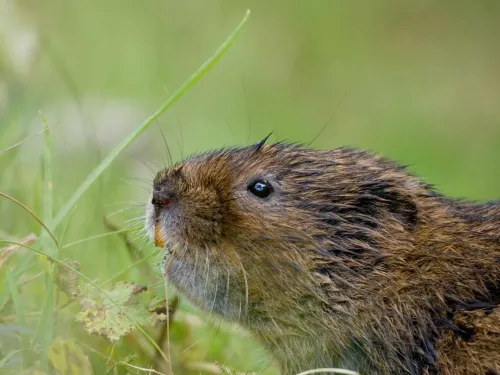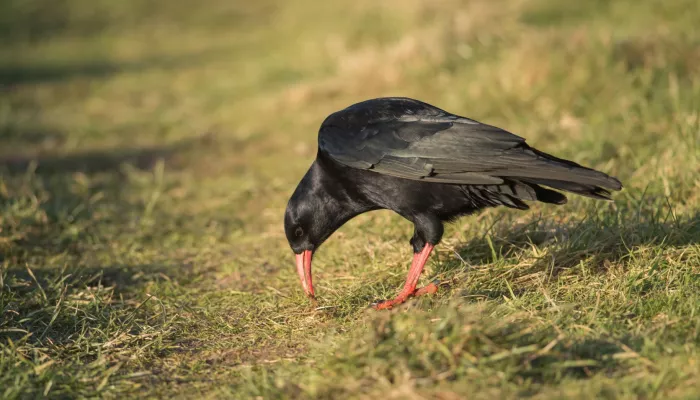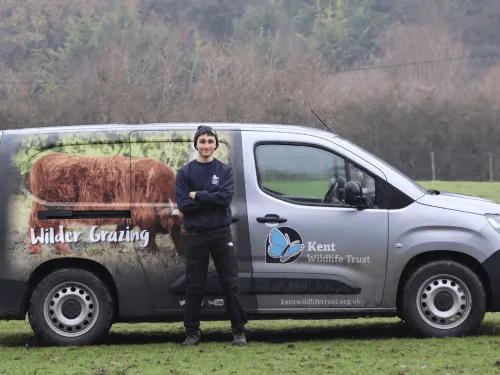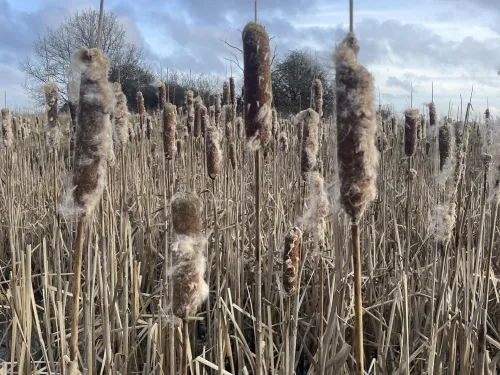
What are chalk streams?
Chalk streams are an ecologically significant freshwater habitat and are globally rare. England holds approximately 85% of the global total with the majority of those dotted around the south, including in Kent.

Their previous stay (August-December 2021) saw thousands of visitors flock to the aviary to learn more about the choughs' cultural and ecological significance to Kent, ahead of the reintroduction of this species to the wild later this year.
We are working with English Heritage so that you can visit this aviary at Dover Castle and learn all about the choughs' rich heritage.
Kirsty Swinnerton is a Wilding Ecologist from Kent Wildlife Trust:
When the choughs left Dover for Wildwood last winter, they had pale orange beaks. Now that they are a little older, they will be showing off their signature scarlet bills - an iconic characteristic of this species which is featured throughout Kent’s history and local architecture, from crests to pub signs!
Laura Gardner is Director of Conservation at Wildwood Trust:
“This is such an exciting time for everyone working on the project. It will be the final stint for our four red-billed ambassadors at Dover Castle, who we’ve watched grow and flourish from day one.”
“We’re expecting to see chough chicks hatching here at Wildwood in just a matter of weeks. The hope is that those chicks will go on to become the first to soar freely above the White Cliffs in 200 years so we’ll actually be seeing history come to life when they’re released in Dover later this year."

Chalk streams are an ecologically significant freshwater habitat and are globally rare. England holds approximately 85% of the global total with the majority of those dotted around the south, including in Kent.

We're celebrating the journeys of our Kent Wildlife Trust apprentices.

Long-time volunteer Margery Thomas explores the wildlife at Hothfield Heathlands in February, where reedmace tells a story...